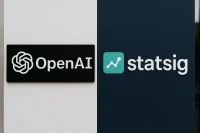The relentless grind of today’s job market often leaves us feeling like a machine, constantly working without reprieve. Burnout has become the unfortunate byproduct of this cycle. Balancing professional obligations and personal well-being is more crucial than ever. But how can we take a break without sabotaging our careers or finances?
Many people struggle to take vacations without impacting their careers or finances. The fear of falling behind at work or feel guilty about spending money can prevent a tired person from taking the breaks she’s lost desperately needed. Finding that sweet spot where you can recharge without force effect repercussions is key to managing these things.
This blog post aims to help you plan holidays that won’t affect your career or wallet. We’ll explore:
- Strategic timing for breaks
- Smart financial planning
- Budget-friendly destinations
- Money-saving travel hacks
- Getting your work done before you leave
- The option of a working holiday
- Tips for easing your return to the workplace
Timing Your Breaks Strategically
Timing is crucial when planning your breaks. Understanding your company’s leave culture can make a significant difference in how your vacation request is received. Some workplaces have a relaxed approach to time off, while others may require a detailed plan for covering your duties in your absence.
Identifying ideal travel windows is key. Consider the following tips:
- Look for slow periods in your work schedule.
- Align your vacation with public holidays to maximize your time off without affecting productivity.
- Take a few days off around a long weekend to get an extended break without using too many leave days.
When framing your vacation request, consider the following:
- Be clear and concise.
- Highlight how you plan to manage your responsibilities before and during your absence.
- Use this proactive approach to reassure your employer that your time off will not disrupt the workflow.
- If your job supports remote or hybrid work options, consider using tools like The Work Project for a seamless transition into your vacation mode.
Smart Financial Planning for Getaways
Financial planning is crucial for a stress-free vacation. Start by setting up a “vacation savings” plan. Allocate a small portion of your monthly income to this fund, ensuring that your vacation expenses are covered without dipping into your regular savings or emergency funds.
Set budget ranges for typical trip components such as:
- Flights
- Accommodation
- Food
- Activities
A clear budget helps you make informed decisions and avoid overspending. Reassessing and refinancing existing loans can also provide more liquidity for your travels. The Loan Connection is a valuable resource for finding the lowest HDB bank loan rates, freeing up additional funds for your getaway.
Remember, every little bit helps. Wise financial planning and management allow you to enjoy a fulfilling vacation without the stress of financial strain.
Choosing the Right Destination
Choosing the right destination is crucial for a budget-friendly vacation. Prioritize short-haul options that won’t break the bank. Exploring nearby gems can offer enriching experiences without the hefty price tag of long-haul travel.
The best holiday destinations are often closer than you think. Discover local or regional spots you might have overlooked.
Money-Saving Travel Hacks

Maximize your vacation budget with savvy travel hacks:
- Start by booking your flights and accommodation early.
- Keep an eye on travel deals and discounts to save a significant amount.
- Use points, miles, and cashback from travel cards to further reduce your expenses.
Shopping duty-free is another great way to save. High-quality items, such as blended scotch, can be found at a fraction of the cost. This adds a touch of luxury to your trip and makes for great gifts or souvenirs.
Monitor travel deal websites and apps for last-minute discounts. Sometimes, spontaneous plans can lead to the best deals and experiences.
Getting Work Done Before You Leave
Before your vacation, ensure your work is in order. Finish high-priority tasks and create detailed handover documentation for your colleagues. This ensures that your absence won’t disrupt the workflow and that your team can handle any issues that arise.
Set clear expectations with your team about how you operate during your vacation. An auto-responder can manage external communication, while an internal plan can cover your duties. This transparency helps maintain productivity and reassures your colleagues and superiors that everything is under control.
The “Working Holiday” Option
For those who find it difficult to completely disconnect from work, a working holiday might be the perfect solution. This hybrid approach allows you to fulfill your job responsibilities while enjoying a change of scenery. Choose accommodations that support productivity, such as those with reliable Wi-Fi and dedicated workspaces that works for your needs.
Maintaining boundaries between work and leisure is crucial. Set specific work hours and stick to them, so you can fully enjoy your vacation time.
Smoothing the Return
Returning to work after a vacation can be a jarring experience. To ease the transition, avoid scheduling meetings on your first day back. This allows you to catch up on emails and tasks gradually.
Use the energy and relaxation gained from your holiday to reboot your performance. A refreshed mind can lead to greater productivity and innovative ideas.
Conclusion
Taking time off to rest is not a liability; it’s a professional asset. Smart planning and financial management ensure that your holidays are guilt-free and rejuvenating. By timing your breaks strategically, saving diligently, and choosing the right destinations, you can enjoy enriching vacations without sabotaging your career or finances.
Remember the financial tools and resources available to you, such as vacation savings plans and loan refinancing options. These can provide the necessary support to make your dream vacation a reality.
Rest is an essential part of maintaining a healthy work-life balance. With proper planning, you can enjoy your holidays and return to work with renewed energy and focus.
Frequently Asked Questions
How can I plan my vacation without affecting my work?
To effectively plan your vacation without disrupting your work, understand your company’s leave policies and identify optimal travel times. Frame your vacation request thoughtfully, ensuring it aligns with your team’s schedule and responsibilities.
What are some tips for saving money on travel?
To save money on travel, book your trips early, utilize points and miles from travel credit cards, and take advantage of duty-free shopping for quality items. These strategies can significantly reduce your travel expenses.
How can I financially plan for my vacation?
To effectively financially plan for your vacation, establish a dedicated vacation savings fund and create a budget for each aspect of your trip. Additionally, explore options to refinance existing loans to free up more resources for your travel plans.
What is a working holiday, and how can I manage it?
A working holiday allows you to work while traveling, blending job duties with leisure time. To manage it effectively, select suitable accommodations that promote productivity and establish clear boundaries between work and relaxation.
How can I ensure a smooth return to work after my vacation?
To ensure a smooth return to work after your vacation, avoid scheduling meetings on your first day back and take time to gradually recalibrate your workload. Utilize any post-holiday energy to boost your performance effectively.




